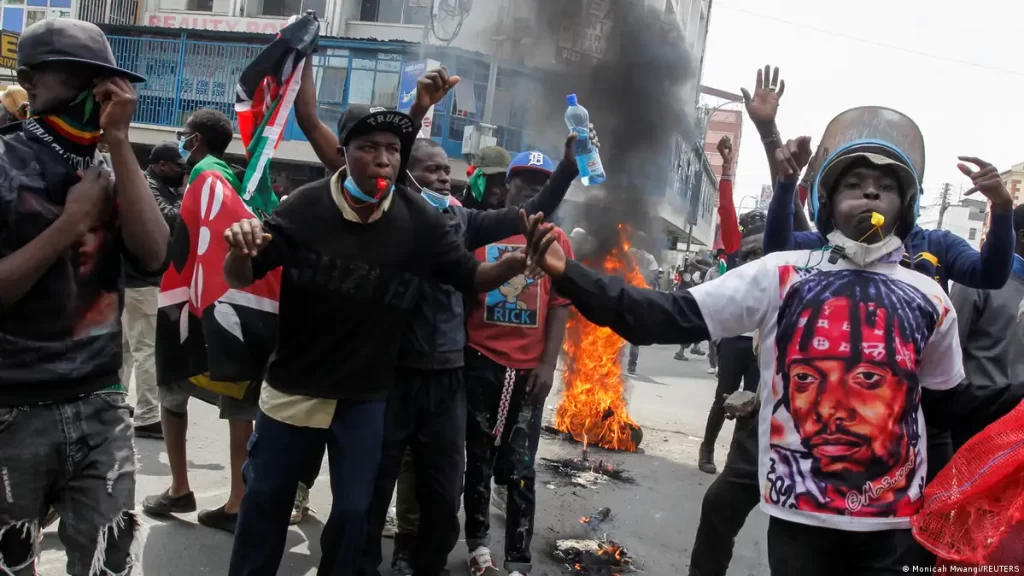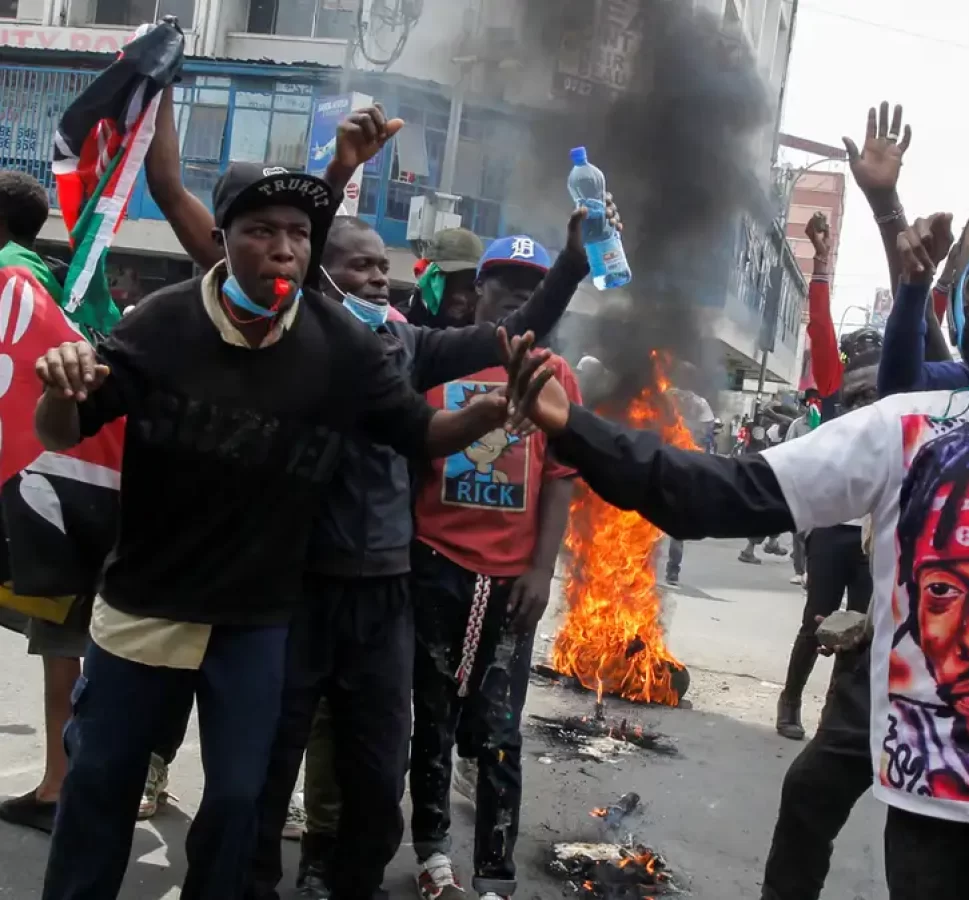
Riot police have fired tear gas at protesters in Kenya’s capital, Nairobi, as demonstrations erupted in several cities.
Fresh protests have flared again in several Kenyan cities, with demonstrators facing a heavy police presence.
In the capital, Nairobi, police fired tear gas at protesters after they set fires on the main road running through the center of the city and threw stones at police in the central business district.
DW correspondent Sella Oneka said she saw “small groups of protesters being chased by police,” with officers sporadically firing tear gas and making arrests. Dozens of shops had shuttered their doors in case of violence.
NTV Kenya’s livestream showed hundreds of protesters walking on the streets of Mombasa, Kenya’s second largest city. They waved palm fronds, blew on plastic horns and beat on drums, calling out the president with chants of “Ruto must go!”
Smaller rallies are also taking place in Kisumu on Lake Victoria, Nakuru, northwest of Nairobi and Nyeri in the central highlands.
Young Kenyans are angry
Activists have called for another round of demonstrations, even though President William Ruto caved to pressure and abandoned the controversial Finance Bill on June 26 that contained several tax hikes, including on bread and cooking oil.
Ruto’s withdrawal of the bill followed deadly demonstrations in the capital a day earlier.
Kenya’s Ruto withdraws reviled tax bill after protests
According to the government-funded Kenya National Commission on Human Rights, 39 people have been killed and 361 injured during two weeks of demonstrations.
Speaking on Sunday, Ruto also invited youth for a dialogue to address their issues.
Judy Achieng, programs officer at Siasa Place, a political hub that empowers youth and women to take up political leadership, said young people are now too fed up with Ruto to talk and are calling for him and his Kwanza alliance to resign.
“We are tired. The time for talking is out. You [the government] should have listened to us when we first said we don’t want this bill,” she told DW. “We just want implementation. We want the cost of living to go down. We don’t want to talk.”
Governance lost people’s ‘trust’
Ruto was elected in September 2022 on campaign promises to lower the cost of living and create jobs for young people. Young Kenyans are generally more educated than their parents, but the vast majority of jobs are in the informal sector, leaving the country with around 80% of working poor — that is, people who don’t earn enough to give them and their families a decent living.
People are angered by corruption, unfulfilled promises, bad governance and what they see as politicians flaunting their wealth, said Achieng.
Kenya must find way to fix budget after tax hikes withdrawn
“These protests, they’re beyond the Finance Bill. It’s about the governance system that we have in Kenya. […] Young people feel that politicians have been showing off in terms of lifestyle when other guys are suffering.”
Kenyan politicians are the second-highest paid in the world adjusted for GDP.
DW journalist Andrew Wasike, who is based in Nairobi, said there was “no trust between the president and the youth who are protesting.”
“Anybody I speak to on the street [when I am reporting], they’ll always say the same thing. ‘I don’t trust President Ruto, I don’t trust what he’s saying.’ That is why we are at a stalemate. There’s no one leading the protests. The youth are just speaking with one voice,” he said.






